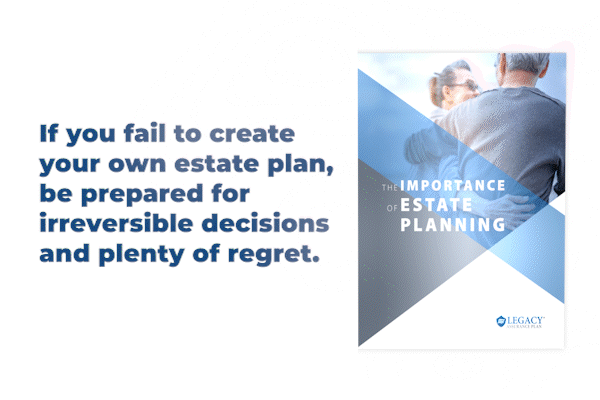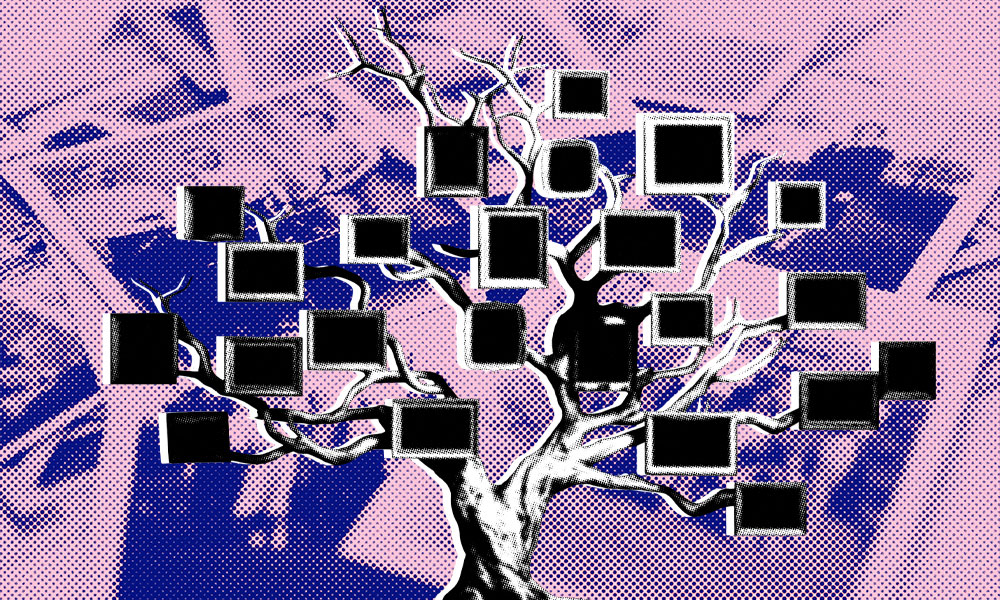When Sarah opened the dusty box her grandmother had left her, she wasn't expecting to find treasure. But there, beneath old photographs and faded letters, lay a handwritten journal filled with family stories, cherished recipes and life lessons learned through decades of triumph and hardship. "I learned more about who I am and where I come from from that journal than I did from any inheritance," Sarah recalls. "It gave me something money could never buy – a deep connection to my family's history and values."
Most people approach estate planning with a singular focus: ensuring their material wealth and assets are properly distributed after they're gone. They meticulously detail their financial accounts, real estate holdings and precious possessions. Yet they often overlook their most valuable legacy – the intangible assets of wisdom, values and stories that have the power to guide and inspire generations to come.
This oversight isn't surprising in our increasingly digital and fast-paced world, where families are often scattered across continents and traditional methods of passing down heritage face new challenges. The art of preserving and transmitting family values, life lessons and shared histories – what experts call "emotional legacy planning" – is at risk of being lost just when it's needed most.
Consider this: While financial wealth can be depleted in a single generation, a well-preserved emotional legacy can enrich your family for centuries. It can help your great-grandchildren understand their roots, guide your descendants through difficult decisions and maintain the bonds of family connection long after you're gone. Yet surprisingly few people take concrete steps to document and protect this priceless inheritance.
Fortunately, you can create, preserve and pass down your emotional legacy as an essential component of estate planning. Whether you're just beginning to think about your legacy or looking to enhance your existing estate plan, you can use practical tools, proven strategies and inspiring examples to help ensure these intangible gifts – your values, wisdom and life lessons – survive to benefit future generations.
From creating ethical wills and legacy videos to organizing family history projects and establishing meaningful traditions, there are many ways you can build an emotional legacy that truly reflects who you are and what matters most to you. More importantly, you'll learn how to engage your family in this vital process, creating deeper connections and shared understanding that can help prevent the conflicts and misunderstandings that often arise during estate settlement.
Why is emotional legacy planning important?

Research by wealth advisory firm The Williams Group shows that 70% of wealthy families lose their fortune by the second generation, and 90% by the third, known as the “third-generation curse.” However, families who actively preserve and transmit their values, stories and life lessons are more likely to maintain both their financial and emotional wealth across generations. Emotional legacy planning helps create lasting family bonds, provides guidance for future generations and ensures your most profound impact lives on.
Furthermore, an emotional legacy can help prevent family conflicts that often arise during estate settlement. When family members clearly understand your values and wishes, they're better equipped to honor your intentions and work together harmoniously.
How can I pass along my values after I’m gone?
Creating an emotional legacy to pass along your values requires intentional effort and thoughtful planning. Here are three essential steps to begin:
Self-reflection
- Identify your core values and beliefs.
- Consider the life lessons you've learned.
- Determine what wisdom you want to share.

Family engagement
- Have meaningful conversations with family members.
- Document family stories and traditions.
- Create opportunities for intergenerational connection.
Legacy documentation
- Choose appropriate methods to preserve your legacy.
- Regularly update and review your emotional legacy plan.
- Ensure accessibility for future generations.
What are the best tools for preserving my emotional legacy?

Several powerful tools can help capture and transmit your emotional legacy. They include:
- Ethical wills. An ethical will, also known as a legacy letter, is a personal document that shares your values, beliefs and life lessons with future generations. Unlike a traditional will that distributes material assets or a living will that discusses end-of-life treatment preferences, an ethical will conveys what truly matters to you. These documents often include personal stories, family history, life advice and expressions of love and gratitude.
- Legacy videos. Modern technology makes it easier than ever to create lasting video records of your stories and wisdom. Professional legacy video services can help you produce high-quality recordings that capture your personality, voice and mannerisms for future generations. These videos provide an intimate connection that written documents alone cannot achieve.
- Family history projects. Documenting your family's history helps preserve important stories and connections across generations. This might include creating family trees, recording oral histories, organizing photographs or writing detailed family narratives. Digital platforms now offer innovative ways to collect and share these materials.
How can I incorporate emotional legacy into estate planning?
Integrating emotional legacy planning into your broader estate plan ensures your intangible assets receive the same careful attention as your material wealth. Work with experienced estate planning professionals who understand the importance of emotional legacy and can help align your financial and personal goals.
Consider creating a family mission statement that articulates your core values and vision for future generations. This document can guide both financial decisions and family governance. It's also valuable to establish regular family meetings or councils where multiple generations can discuss both practical and emotional aspects of the family legacy.
What are common mistakes in emotional legacy planning?

Many people make these common mistakes when planning their emotional legacy:
- Waiting too long. Don't wait until a crisis or health issue forces you to rush the process. Start preserving your emotional legacy while you have time to reflect deeply and engage meaningfully with family members.
- Focusing only on success stories. Share both triumphs and challenges. Your mistakes and how you overcame difficulties often provide the most valuable lessons for future generations.
- Neglecting to update. Like financial planning and estate planning, emotional legacy planning should be an ongoing process. Regularly review and update your legacy documents to reflect new experiences and insights.
Conclusion
Your emotional legacy represents values, wisdom and connections that money cannot buy. By thoughtfully preserving these intangible assets, you create a lasting gift that can guide and inspire generations to come.
Remember that legacy planning is not about controlling future generations but about providing them with resources to make thoughtful choices aligned with enduring family values. The most successful emotional legacies empower descendants to build upon the foundation you've created while remaining true to their own paths.
As you develop your estate plan, give careful consideration to both your material and emotional assets. Work with professionals who understand the importance of emotional legacy planning, and engage your family in meaningful conversations about what matters most. By taking these steps, you help ensure that your most valuable gifts – your wisdom, values, and love – continue to enrich your family for generations to come.
The effort you invest in preserving your emotional legacy may ultimately prove more valuable than any financial inheritance you leave behind. Start today by reflecting on what matters most to you and how you can share those precious gifts with future generations.



